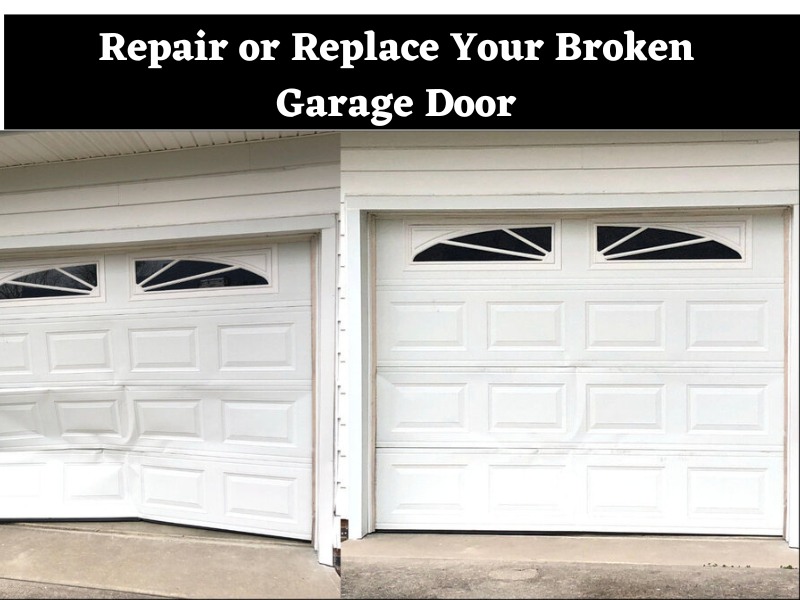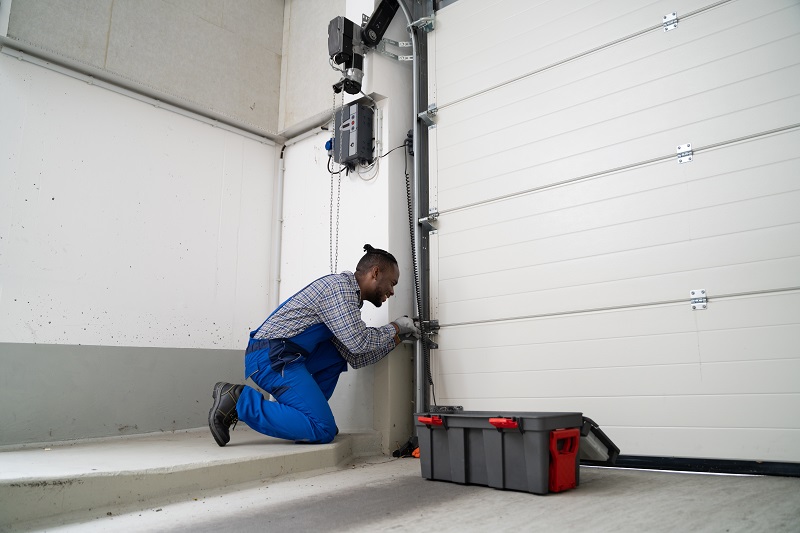Common Garage Door Troubles and Just How to Fix Them
Garage doors are essential for both safety and security and convenience, yet they commonly provide a variety of usual issues that can irritate home owners. Troubles such as excessive sound during procedure, doors that fall short to open up or close, misaligned tracks, and malfunctioning remotes can develop without warning. While some issues might show up straightforward to resolve, others might require a more nuanced understanding of garage door technicians. Resolving these troubles properly not just boosts capability yet likewise lengthens the life of the door. One could question what actions are necessary to tackle these difficulties efficiently.
Noisy Garage Door Operation
A noisy garage door procedure can be a substantial resource of annoyance for home owners, typically suggesting underlying mechanical problems. Such interruptions may come from different causes, including damaged rollers, loosened equipment, or inadequate lubrication. Determining the source of the noise is important for efficient resolution.
One common source of too much sound is the visibility of rusty or damaged rollers. With time, these elements can degrade, leading to grinding or squealing audios as the door actions. Regular examination and substitute of these rollers can dramatically lower sound levels. In addition, loosened bolts or screws in the door system can produce rattling noises during operation. Tightening these fasteners guarantees a more stable and quieter movement.
One more adding factor is poor lubrication of the door's relocating components. Using a top notch lubricant to the tracks, springtimes, and rollers can considerably lessen friction and sound. Property owners should perform this maintenance periodically to maintain optimal performance.
Finally, the garage door opener may likewise create noise because of its age or mechanical issues. If the noise continues regardless of addressing other elements, getting in touch with an expert for a detailed inspection and possible fixing might be necessary.
Door Won't Open Up or Close
Experiencing a garage door that won't open up or shut can be exceptionally discouraging and often signals a malfunction within the system. A number of aspects can add to this problem, and recognizing the origin is essential for reliable resolution.

Next, examine the safety sensing units situated at the base of the door. These sensing units can become misaligned or blocked by debris, preventing the door from operating appropriately. Clean the sensors with a soft cloth and ensure they are lined up.
Furthermore, the garage door's internal parts need to be examined. Concerns such as a damaged springtime, worn-out rollers, or a damaged opener can hamper motion. If any elements seem damaged, it might be suggested to seek advice from a professional for repair work.
Misaligned Tracks
If you notice any kind of disparities, it is vital to resolve the concern quickly. Very carefully tap the track back into its correct setting using a rubber mallet or a similar tool, guaranteeing it is straight and level.
Normal upkeep, including cleaning up the tracks and ensuring rollers are in good problem, can prevent future misalignments. By resolving misaligned tracks quickly, you can restore the capability of your garage door and enhance its longevity.
Broken Springs
Among the numerous parts of a garage door system, damaged springtimes are just one of one of the most usual problems that can considerably restrain its performance. Garage door springs are vital for balancing the weight of the door, permitting smooth opening and closing. When a springtime breaks, it can result in a door that is tough to operate or, in some cases, completely inoperable.
There are two major kinds of springtimes: torsion springs, which are placed above the door, and extension springs, located on either side. Indicators of a broken springtime include a door that won't open, a noticeable gap in the springtime, or a loud sound during procedure. Trying to operate a garage door with a busted springtime can trigger more damage to the door or the opener.
Fixing broken springtimes is not a do it yourself job; it needs specialized devices and knowledge because of the high tension included. It is recommended to speak with an expert service technician who can securely replace the springtimes and guarantee the door is appropriately stabilized. Regular upkeep and inspections can aid protect against spring failures and prolong the life expectancy of the garage door system.
Push-button Control Issues

If the remote still stops working to operate, check the garage door opener to guarantee that its sensors are tidy and unblocked. Dust, particles, or misalignment why not try this out may prevent the signal transmission between the remote and the opener.
Disturbance from other electronic gadgets can also restrain remote performance. Guarantee that close-by tools, such as wireless routers or cordless phones, are not causing interruptions. garage door service. If interference is thought, attempt relocating these devices further far from the garage door opener
In some instances, the remote may need to be reprogrammed. Speak with the maker's standards to reset the remote control and integrate it with the garage door opener. If all else fails and the remote proceeds to malfunction, think about getting in touch with a professional specialist for an extensive examination and possible substitute of the remote or opener.
Final Thought
Comments on “Trustworthy Garage Door Service for Tune-Ups and Inspections”